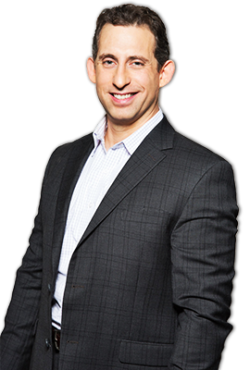Evidence of Insurability (EOI) in Canada: Meaning, Forms & Why Insurers Ask for It

Evidence of insurability (EOI) is a common insurance requirement in Canada — but it often confuses employees who are enrolling in group benefits or applying for additional coverage. If you’re filling out an evidence of insurability form, or your insurer has asked you for proof of insurability, this guide explains exactly what it means, when it’s required, and what happens if your request for coverage is denied.
What Is Evidence of Insurability?
Evidence of insurability is information an insurance company asks for to confirm your health status before approving certain types of coverage.
It usually includes questions about your medical history, lifestyle, and previous diagnoses.
Insurers use this information to decide whether they can offer you the level of coverage you’re applying for — especially if it goes beyond the non-evidence maximum (NEM) included in many group benefits plans.
Evidence of Insurability Meaning
The meaning of evidence of insurability is straightforward:
It’s “proof” that you’re healthy enough to qualify for optional or additional insurance coverage.
This proof can take several forms, such as:
- A completed EOI form
- A medical questionnaire
- A report from your doctor
- Bloodwork or other medical tests (less common, but possible)
Insurers only ask for this extra information when the amount of coverage you want falls outside the guaranteed, automatic coverage under your plan.
What Is an EOI Form?
An EOI form (also called an evidence of insurability form) is the document you must fill out when applying for optional insurance.
It asks for details like:
- Medical conditions you’ve been diagnosed with
- Medications you currently take
- Recent treatments or surgeries
- Height, weight, and smoking status
- Family medical history
- Recent changes to your health
The insurer uses this form to help determine the level of risk they would be taking on if they approve you for additional benefits.
When Do You Need to Provide Evidence of Insurability?
You may need to provide evidence of insurability when:
- You want optional life insurance, optional health insurance, or extra disability coverage
- You apply for coverage after the initial enrollment window (usually 30 days)
- Your requested amount exceeds the plan’s non-evidence maximum (NEM)
- You previously declined coverage and now want it
- Your insurer believes there is a significant change in your health
ℹ️ If you’re part of a group benefits plan at work, the base level of coverage is often automatic. Anything above that usually requires EOI.
Common Reasons Insurers Request EOI
Insurers ask for evidence of insurability when they need to assess risk, including when:
- You’re buying more insurance than the standard plan offers
- The insurer needs updated medical information
- You missed the enrollment deadline
- Your employer offers voluntary add-on coverage
- You’re making changes to an existing plan
Can an Insurer Deny Your Application Based on EOI?
Yes.
If your EOI answers show recent medical treatment, certain diagnoses, or risk factors, the insurer may:
- Deny the additional coverage
- Approve a reduced amount
- Add exclusions or conditions to the policy
- Increase premiums
ℹ️ If this happens, it does not affect your basic group benefits — only the extra optional coverage.
EOI vs. Non-Evidence Maximum (NEM)
A non-evidence maximum is the amount of coverage you automatically receive without needing to provide medical information.
If you request coverage above the NEM, you must submit an EOI form.
How Evidence of Insurability Can Affect Long-Term Disability (LTD) Claims
While EOI is usually tied to life insurance or optional disability coverage, it can indirectly affect long-term disability in Canada.
For example:
- If your EOI form contains inaccurate information, the insurer may deny coverage later.
- Insurers sometimes try to rely on EOI answers to argue a “pre-existing condition” limitation.
- Denials may be linked to optional LTD coverage limits that required EOI approval.
Denied Optional Coverage or LTD Benefits? We Can Help.
If your insurer denied optional insurance or denied long-term disability benefits due to your evidence of insurability answers, you don’t have to face the process alone.
Our disability lawyers at Samfiru Tumarkin LLP have helped thousands of Canadians challenge wrongfully denied insurance claims. We know how insurance companies review EOI forms — and the strategies they use to deny coverage.
There are no upfront fees. You don’t pay unless we win.
📞 Call us at 1-855-821-5900, email help@disabilityrights.ca, or use our online form for a FREE consultation.




